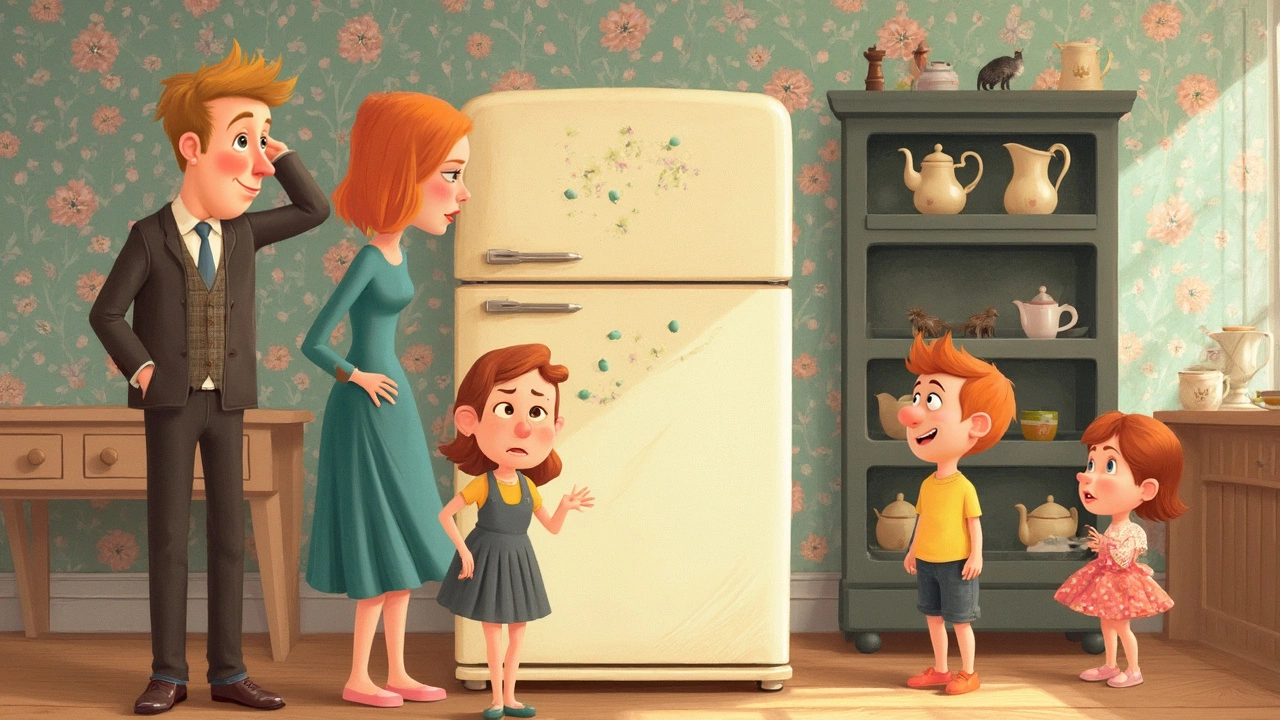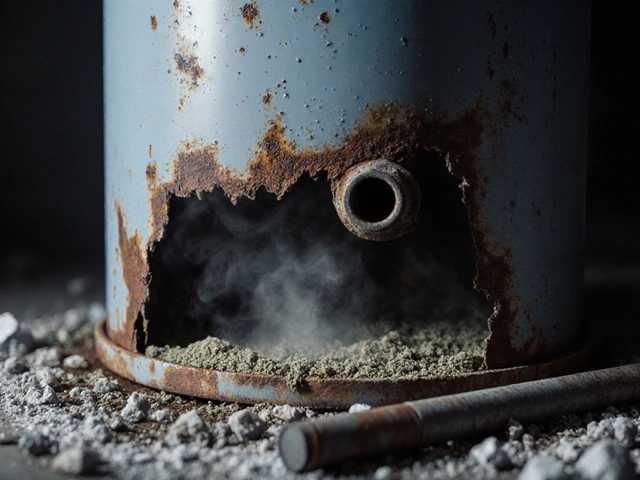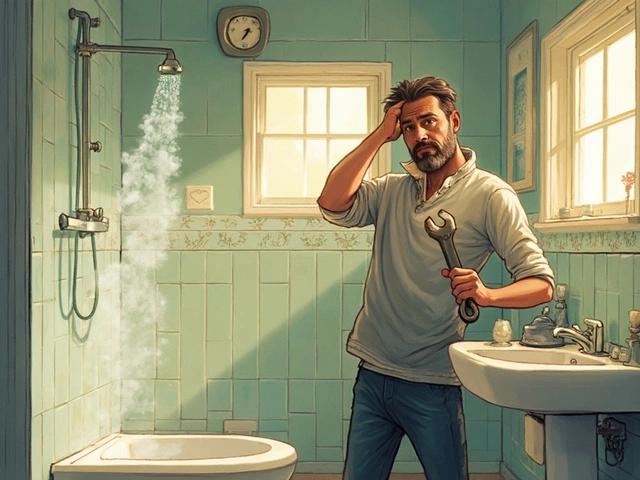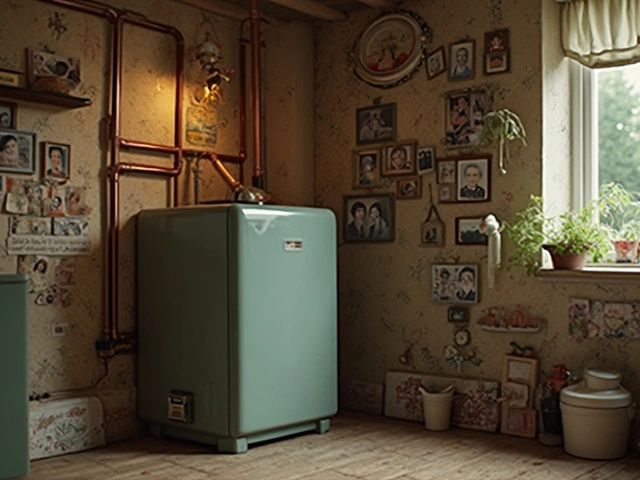Is your fridge making strange noises or not keeping things as cold as it should? These could be signs that it's on the fritz. Your refrigerator is one busy appliance, running round the clock to keep your food fresh. But just like any hardworking machine, it can show signs of wear and tear.
Ever noticed water pooling on the kitchen floor? Or maybe your milk's turning faster than you can say 'expiration date'?. Recognizing these clues early can save you a headache (and a few bucks).
Sometimes, a simple fix like adjusting the interior temperature or cleaning the condenser coils can do wonders. But if you're unsure, it might be time to call in a professional before things get worse. In this guide, we'll walk through the common warning signs and what steps you can take to keep everything running smoothly.
- Common Signs of a Faulty Fridge
- Simple Fixes You Can Try
- When to Call a Professional
- Tips for Preventing Future Issues
Common Signs of a Faulty Fridge
Your refrigerator is an unsung hero in your kitchen, quietly keeping your groceries fresh. But what happens when it starts acting up? Here are some telltale signs that your refrigerator repair might be overdue.
Strange Noises
Have you noticed your fridge suddenly getting chatty? Odd sounds like buzzing, humming, or even banging can indicate issues. These noises often point to problems with the compressor or fan. While a bit of humming is typical, anything too loud or unusual could mean it's time for a check-up.
Temperature Fluctuations
Is your lettuce wilting too soon, or your ice cream turning into soup? Such temperature inconsistency is a classic sign of a faulty fridge. When a fridge can't maintain the right chill, food spoilage happens faster, leading to more grocery trips and wasted money.
Water Leaks
Finding a puddle under your fridge? That's not supposed to happen. A leaky fridge often results from clogged defrost drains or faulty water lines. Ignoring these leaks can lead to further damage and potential mold growth.
Frost Buildup
If opening your freezer feels like stepping into a winter wonderland, there's probably something wrong. Excessive frost is usually due to faulty door seals or problems with the defrost system, both of which need attention.
| Problem | Possible Cause |
|---|---|
| Fridge not cooling | Blocked vents or dirty coils |
| Noises | Faulty compressor or motors |
| Water leaks | Clogged defrost drain |
| Frost buildup | Broken door seals |
Noticing these issues early can steer you towards a solution before the problem becomes a disaster. Whether it's a DIY fix or a job for the professionals, addressing these signs promptly can save your fridge—and your sanity.
Simple Fixes You Can Try
Before you panic and call for repairs, there are a few simple steps you can take to troubleshoot fridge problems on your own. Many common issues can be resolved with a little DIY spirit.
Check the Temperature Settings
First things first, ensure that your refrigerator and freezer are set to the right temperatures. For the fridge, aim for around 37°F (3°C), and for the freezer, about 0°F (-18°C). Adjusting these settings might fix temperature fluctuations that could be causing trouble.
Clean the Condenser Coils
If you've noticed your refrigerator isn't cooling enough, dirty condenser coils might be at fault. Dust bunnies love hanging out here. Cleaning them can be a game changer. Try this:
- Unplug the fridge for safety.
- Locate the coils either behind or beneath the fridge.
- Use a vacuum cleaner or a coil brush to gently remove dirt and debris.
- Plug your fridge back in and see if there's a noticeable improvement.
Inspect the Door Seals
A simple way to test if the seals (or gaskets) are doing their job is the dollar bill test. Close the door on a dollar bill so that it's half in and half out of the fridge. If you can pull it out easily without any resistance, you might need to clean the gaskets or replace them.
Defrost the Freezer
If your freezer looks like a winter wonderland of ice, it may not be letting the door close properly, leading to fridge problems like temperature issues. Try defrosting it:
- Transfer your food to a cooler or another refrigerator.
- Unplug the freezer and leave the door open to let the ice melt naturally.
- Wipe away any water and plug it back in once all the ice is gone.
By tackling these fridge troubleshooting tips yourself, you might just extend the lifespan of your appliance without spending a dime!
Refrigerator Lifespan Statistics
| Appliance | Average Lifespan |
|---|---|
| Refrigerator | 10-15 years |
| Freezer | 12-20 years |
Remember, keeping an eye on these common issues can save your food and your wallet. But don't hesitate to call a professional if things still feel off.

When to Call a Professional
Let's face it: DIY fixes are cool, but some refrigerator issues are just not worth tackling on your own. So, when should you actually call the experts? Here are some signs that it's time to pick up the phone and get in touch with a refrigerator repair professional.
Temperature Problems
If your food isn't staying cold even after adjusting the thermostat, something's off. A pro can pinpoint whether it's an issue with the compressor or another vital component.
Strange Noises
All appliances make some noise, but if you hear loud buzzing, clicking, or clunking, that's a red flag. These sounds might mean trouble with the condenser or evaporator motors—a job best left to a professional.
Leaking Water
Excess water on the floor or inside the fridge isn't just annoying; it can be a sign of a blocked defrost drain or a clogged water line. A repair tech can quickly diagnose and fix these types of fridge problems.
Electrical Issues
Any flickering lights, repeated circuit breaker trips, or burning smells are serious. Electrical repairs require expertise and are too risky to handle DIY style. Leave it to someone who knows what they're doing.
Unresponsive Controls
Touch controls and digital displays that don’t respond can signal deeper electronic malfunctions. An expert technician can help with these electronics-based issues and get your fridge back in order.
On average, calling a professional for appliance maintenance might cost between $150 and $400. It's an investment, but it saves you from the headache of dealing with bigger, costlier damage down the line.
Tips for Preventing Future Issues
Keeping your refrigerator in tip-top shape doesn't have to be a massive headache. With some easy steps and a bit of attention, you can avoid common problems and save some cash in the long run.
Regular Maintenance is Key
Think of maintenance as giving your refrigerator a bit of a spa day. It deserves it after all the hard work! One of the first things you can do is to give those condenser coils a good clean. Dusty coils can make your fridge work overtime, and no one likes that. A quick vacuuming every six months should do the trick.
Don't Overstock
Sure, it's tempting to stock up on all the goodies, but cramming your fridge until it bursts is a bad idea. Good airflow inside is critical for temperature regulation. So it's best to keep it only about 75% full to let that cool air circulate nicely.
Keep Door Seals Tight
If you notice that your fridge's door isn't closing as snuggly as it used to, that's a sign. Those rubber seals can wear out or get gunky, letting the cold air escape. Check them regularly and give them a wipe with warm soapy water. If they're cracked or loose, think about replacing them.
Right Temperature Matters
Set your fridge temperature around 37-40°F (3-4°C). Too cold, and you're wasting energy; too warm, and your food might spoil. Invest in a cheap fridge thermometer if you need to double-check.
Location, Location, Location
Where you put your fridge matters. Make sure it's not right next to the oven or in direct sunlight. A hot environment can make it work harder, leading to wear and tear. Give it some breathing room too; about an inch or so from the wall helps with ventilation.
A bit of care now can prevent those pesky fridge problems later on. It's like they say, an ounce of prevention is worth a pound of cure. Keep these practical tips in mind, and your refrigerator will thank you with years of efficient service!





